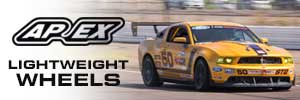Now I may be late to the party but I have see you tube awash in 5.2 350 engine failure due to bottom end damage. After reading that Ford switched to the cross plane crank for the gt500 to reduce NVH, I wonder if the flat plane crank in a larger engine is contributing to these failures. Any thoughts here???
- Welcome to the Ford Mustang forum built for owners of the Mustang GT350, BOSS 302, GT500, and all other S550, S197, SN95, Fox Body and older Mustangs set up for open track days, road racing, and/or autocross. Join our forum, interact with others, share your build, and help us strengthen this community!
You are using an out of date browser. It may not display this or other websites correctly.
You should upgrade or use an alternative browser.
You should upgrade or use an alternative browser.
Flat plane vs Cross plane
- Thread starterMichael55
- Start date
This site may earn a commission from merchant affiliate links, including eBay, Amazon, and others.
More options
Who Replied?I don’t think it helps any.
Grant 302
basic and well known psychic
Contributing? Probably.
Well, for me personally there's a bit of concern. I don't have one, but it's the first Ford that I'd want to buy the extended warrantee *if* I get one.Any thoughts here???
Flat-plane crank is good enough for new Z06 and ZR1.
https://www.caranddriver.com/news/a28843640/chevrolet-corvette-c8-z06-zr1-hybrid-engine/
https://www.caranddriver.com/news/a28843640/chevrolet-corvette-c8-z06-zr1-hybrid-engine/
Grant 302
basic and well known psychic
Lol. Not inspired by Ford at all.The new engine is expected to be 5.5 liters in displacement and have a firing order that mimic the Italian and British supercars'—which produce a richer, deeper wail than the shriek of Ford's flat-plane-crank 5.2-liter Voodoo engine in the Mustang Shelby GT350.
Sounds like vaporware written by a Chevy fan.The all-new 32-valve flat-plane-crank V-8 has been under development within General Motors for several years.
My computer has a filter to guard against vaporware...Sounds like vaporware written by a Chevy fan.
Grant 302
basic and well known psychic
So you can't see the article? 

Mad Hatter
Gotta go Faster
Am I right in saying that the all out track cars like the GT4 are cross plane??
Yes you are.
This has been debated many times and the consensus of the other debates is that the FPC engine isn't as inherently fragile as the internet makes it look. If a regular Coyote fails, it's not news, it's just a pain in the butt. If a Voodoo fails, it's a big deal and each one seems to warrant a YouTube video and a whole thread in a forum. Whether it's more accident-prone than a regular Coyote is hard to assess because the Voodoo produces more HP per liter than Ford's other NA engines and it turns more RPM, and those factors alone will be detrimental to reliability.
What's been said (by people who are supposed to know) about the FPC vs. CPC issue on the GT4 and other purpose built race cars is that they didn't need an engine that made its power at the top end, they needed it down low and the CPC does that better than the FPC. The cars are HP limited by class rules in any case, so it's all about torque.
What's been said (by people who are supposed to know) about the FPC vs. CPC issue on the GT4 and other purpose built race cars is that they didn't need an engine that made its power at the top end, they needed it down low and the CPC does that better than the FPC. The cars are HP limited by class rules in any case, so it's all about torque.
Grant 302
basic and well known psychic
Funny C&D cites the Motortrend but seems to ignore some of it...they're doubting the 5.5L.
https://www.motortrend.com/500/
I'll wait for the formal announcement from Chevy.
https://www.motortrend.com/500/
Don't expect a 5.5-liter displacement, though. Many outlets have tossed this number around without any basis. It may have come from the C7.R's engine, which is restricted by IMSA racing rules to 5.5 liters, and the old rule states "there's no replacement for displacement." Except there is. It's called forced induction, that's where the turbos come in. More important than that, though, larger displacement (bigger bores and longer strokes) means bigger vibrations, which is why it was so shocking to see Ford launch a 5.2-liter flat-plane-crank V-8. There's a reason Ferrari's flat-plane-crank twin-turbo DOHC V-8 is 3.9 liters and McLaren's is 3.8. Expect the C8's displacement to grow from the Blackwing's 4.2 liters, but fall well short of the 5.5-liter number that's been thrown around. The number of issues Ford has had with Voodoo engine failures alone should dispel any notion of Chevrolet going to an even larger displacement.
I'll wait for the formal announcement from Chevy.
Grant 302
basic and well known psychic
This has been debated many times and the consensus of the other debates is that the FPC engine isn't as inherently fragile as the internet makes it look. If a regular Coyote fails, it's not news, it's just a pain in the butt. If a Voodoo fails, it's a big deal and each one seems to warrant a YouTube video and a whole thread in a forum. Whether it's more accident-prone than a regular Coyote is hard to assess because the Voodoo produces more HP per liter than Ford's other NA engines and it turns more RPM, and those factors alone will be detrimental to reliability.
What's been said (by people who are supposed to know) about the FPC vs. CPC issue on the GT4 and other purpose built race cars is that they didn't need an engine that made its power at the top end, they needed it down low and the CPC does that better than the FPC. The cars are HP limited by class rules in any case, so it's all about torque.
Those are good points...I don't believe the stats as would be compiled by youtube videos, etc. either.
But the examples of local on-track failures say otherwise. My first and second-hand observations have me concerned. Too many failures in such a small sample set.
I thought FPC was the wave of the future...it sure sounded great in the GT350!!!!...What happened???
- 1,482
- 408
My dad laughed in my face when I told him at the time that Ford was designing a flat plane crank for the GT350. He promptly led me out to his shop to show me a Ford FPC that was designed and manufactured over a hundred years ago. 
Similar threads
- Replies
- 7
- Views
- 1K













